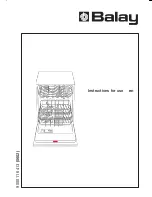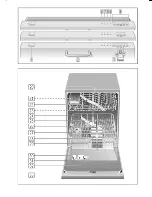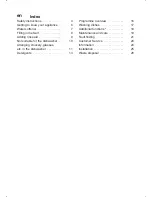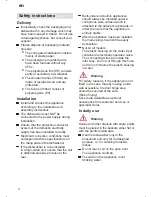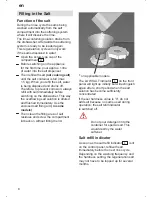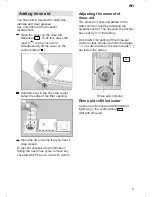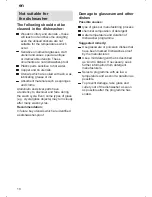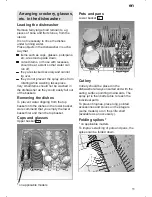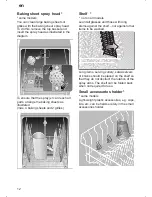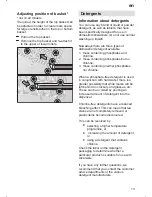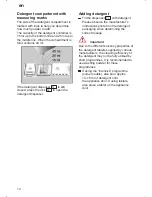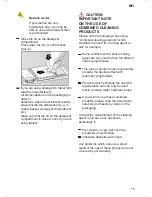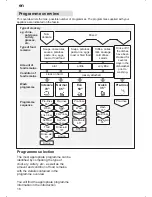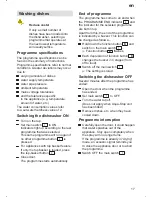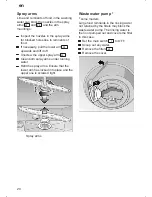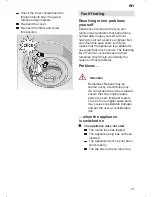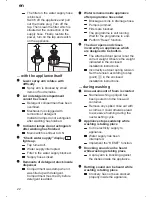
en
7
Water softener
In order to rinse dishes and glasses
satisfactorily, the dishwasher requires soft
water, i.e. containing little or no lime,
otherwise water stains will be left behind
on crockery and glasses, etc.
If the tap water exceeds a certain level of
hardness, it must be softened, i.e.
decalcified, so that it can be used in the
dishwasher.
This is achieved by adding a special salt
to the water softener inside the
dishwasher.
The water softener, that is the required
amount of salt, is set up according to how
hard the tap water is.
Setting up the water softener
Determine the level of hardness of your
tap water. Your local water company or
service agent can help you with this.
Identify setting from the following water
hardness table.
Hold down the programme button B
and switch on the main switch
1
,
then release the buttons.
The display
5
flashes and buttons
A and B illuminate.
(Hardness value 2 was set at the
factory).
To change the setting: Press
programme button B .
Each depression of the button
increases the set value by one (0–3).
If buttons A , B and C illuminate,
the maximum hardness value has been
reached.
If the hardness value is now increased
again, the illuminated buttons go out
and the hardness value is set to 0 (no
buttons illuminated).
Switch off the mains switch
1
.
The set value is stored in the appliance.
Approx. 4 litres of water are required for
regenerating the water softening system.
The overall water consumption per load
can therefore be increased by between 0
and a maximum of 4 litres according to the
water hardness setting.
Water hardness table
_
dh
_
Clarke mmol/
l
_
fH
A
B
C
0–6
17–21
7–16
22–35
0
2
1
3
Reset
0–11
30–37
12–29
38–60
0–8
21–26
9–20
27–44
0–1,1
3,0–3,7
1,2–2,9
3,8–6,2
Summary of Contents for 3VF330NP
Page 1: ...9000 116 413 en...
Page 2: ......
Page 28: ...en 23 en Subjekt to modification...
Page 29: ...en 23 en Subjekt to modification...
Page 30: ...en 23 en Subjekt to modification...
Page 31: ......

